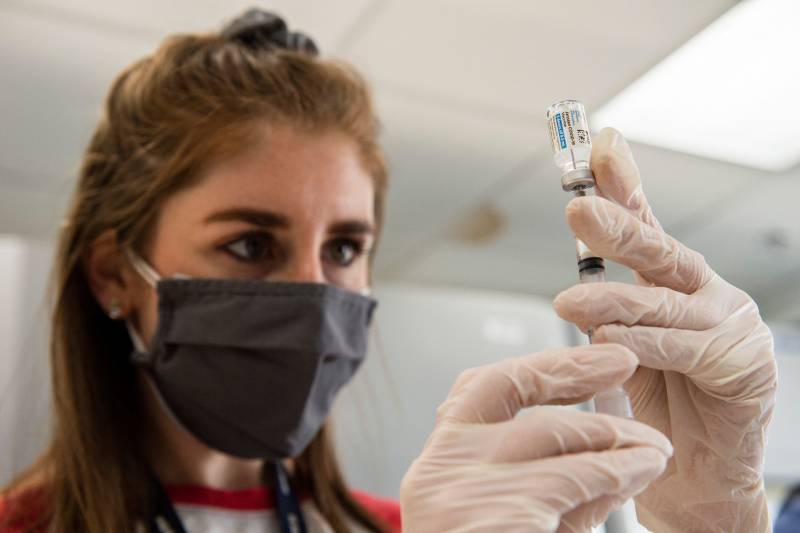More than 6.8 million people in the U.S. have received the Johnson & Johnson/Janssen vaccine, so these are very, very small risks statistically. The Centers for Disease Control and Prevention said that all six cases occurred among women between the ages of 18 and 48, and symptoms occurred six to 13 days after vaccination. Among the six women, one case was fatal and one patient is in critical condition.
The Johnson & Johnson vaccine is not being “recalled,” “banned” or “canceled.” The agency said it expects this pause to last for “a matter of days.”
“The relative risk is really, really low for these severe blood clots,” said Dr. Catherine Blish, infectious disease specialist at Stanford Medicine. “So we’ve had the six cases out of almost 7 million vaccines delivered, which is about one in a million. And while this has been hugely controversial, the birth control pills are associated with about one in 1,000 to [one in 100] rate of blood clots.”
If the Johnson & Johnson Risks Are So Small, Why Are the CDC and FDA Recommending the Pause?
The CDC and the FDA say the pause will allow them to investigate these reactions more. They also say it will help health care providers be ready to spot this rare blood clotting event and treat it appropriately.
To repeat: More than 6.8 million people in the U.S. have received the Johnson & Johnson vaccine. The blood clots showed up in six women. But because of the rare nature of these types of clots, health officials emphasize that they should not be treated the way other clots often are.
Most importantly, Dr. Peter Marks, the director of the Center for Biologics Evaluation and Research at the FDA said doctors should avoid using heparin, a standard blood-thinning treatment, because in these clots it “can cause tremendous harm, or the outcome can be fatal.”
The need for specialized treatment is one reason the CDC and the FDA saw an urgent need to get the word out about this rare combination of side effects.
Medical experts say this kind of pause happens a lot and is “totally normal” and reasonable in order to investigate these extremely rare cases. Regulators don’t know whether the six cases are related to the vaccine, and they need to do a deep dive into the individual patients to determine what’s going on.
What About the Other COVID-19 Vaccines?
The Johnson & Johnson vaccine is one of the three vaccines that’s been available in the U.S., along with Pfizer and Moderna. No similar issues have been reported for the Pfizer and Moderna vaccines.
A similar issue has occurred in Europe with the AstraZeneca vaccine, which is not authorized in the U.S. J&J and AstraZeneca use a different type of vaccine system than Pfizer and Moderna.

